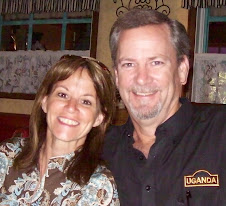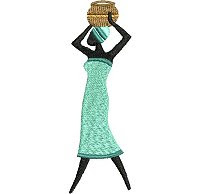 Because of the Lord's great love we are not consumed, for His compassions never fail. They are new every morning; great is your faithfulness. I say to myself, 'The Lord is my portion;'" Lamentations 3:22-24
Because of the Lord's great love we are not consumed, for His compassions never fail. They are new every morning; great is your faithfulness. I say to myself, 'The Lord is my portion;'" Lamentations 3:22-24Hello! Abeeka bali batya?
Living on a different continent away from the people you know and love means meeting the kind of people you wouldn’t at home: people who will ask us about our night when they greet us in the morning and literally want to know about our night; people that want to shake our hand, just because we’re white; people who have fled their country because of war and genocide in theirs; children who never knew their parents; Taxi drivers, police officers, teachers, pastors, farmers, builders, bed makers, nurses…all who earn somewhere in the neighborhood of $1 - $3 dollars per day (and no, the cost of living isn’t cheap here); people who have a million questions about America and will shyly begin to ask us things like, "is it true that all Americans have cars?" "have homes?" "go to school?" (See, I’d be asking about bathrooms but that’s just because I know about them and miss them!) They want to know "how we walk in the snow, why we have Thanksgiving, what we do at Christmas, why the Kennedy family has so many problems, why we read, lay in the sun, and my all time favorite, "how many cows and goats did you get for your daughter when she married?"

We’ve met Roman Catholics, Protestants, Pentecostals, Born Agains and Muslims; About 20 percent believe in local religions, including a proliferation of old traditional customs centering on spirits, spirit possession, witchcraft, witchdoctors and child sacrifices. Really.
To watch the people here is quite amazing. Their heads will be from totally shaved to having several  pounds of dreadlocks suspended in a cap. In the city everyone tries to dress "smart." The rest of the folks are somehow dressed in American’s hand-me-downs. Most children are in rags. Out in the bush, In the villages and in the IDP camps the women and children are naked, or raggedy, or in the traditional
pounds of dreadlocks suspended in a cap. In the city everyone tries to dress "smart." The rest of the folks are somehow dressed in American’s hand-me-downs. Most children are in rags. Out in the bush, In the villages and in the IDP camps the women and children are naked, or raggedy, or in the traditional  dress of busuiti’s or gomasi’s.
dress of busuiti’s or gomasi’s.
 pounds of dreadlocks suspended in a cap. In the city everyone tries to dress "smart." The rest of the folks are somehow dressed in American’s hand-me-downs. Most children are in rags. Out in the bush, In the villages and in the IDP camps the women and children are naked, or raggedy, or in the traditional
pounds of dreadlocks suspended in a cap. In the city everyone tries to dress "smart." The rest of the folks are somehow dressed in American’s hand-me-downs. Most children are in rags. Out in the bush, In the villages and in the IDP camps the women and children are naked, or raggedy, or in the traditional  dress of busuiti’s or gomasi’s.
dress of busuiti’s or gomasi’s. We’ve begun to know which young boys will be selling bizarre trinkets all along our drive into town; which old women will come out and sit alongside the road as the day begins to cool, selling her bananas, potatoes, matoke…which children will be walking up the steep hill past us early in the mornings, stopping only to throw rocks up into the immense Mango trees hoping for the prize of a mango to fall down for their breakfast as they head off to find water, or wood, or food before their long day at school. The occasional cow that breaks away from its tree and heads out down the middle of the road still causes us to laugh as it seeks an escape route.

Mainly there have been scores of people with kind hearts who have welcomed us into their homes and lives. They have shared and trusted us with their stories…there is a lot of pain in this country. We look around and see extreme poverty and hardships. But they say, "this mango is a gift from God; This morning’s rain was a shower of mercy upon us; My healthy child is a miracle. Perhaps tomorrow we will not have such things, but our hearts are so full of God's compassion. He is my portion."
 The children whose sweet and adorable faces grace this years Christmas card are not the faces of our own kids that are far away from us this year. These are children that God has put into our lives that we’ve hugged, cried over, prayed for, prayed with. They have taught us to not "be consumed." With God’s grace, and all of you back in the states, we have been able to sow into their lives with health workshops for
The children whose sweet and adorable faces grace this years Christmas card are not the faces of our own kids that are far away from us this year. These are children that God has put into our lives that we’ve hugged, cried over, prayed for, prayed with. They have taught us to not "be consumed." With God’s grace, and all of you back in the states, we have been able to sow into their lives with health workshops for their families, school fees, beds, medical supplies and equipment for medical clinics, first aid training, food, mosquito nets and HUGE amounts of love and TLC. That’s what God’s been doing in less than three months! The near future holds more trainings, marriage conferences, a new medical clinic, latrine construction (thank God!), vocational trainings and some exciting economic development programs.
their families, school fees, beds, medical supplies and equipment for medical clinics, first aid training, food, mosquito nets and HUGE amounts of love and TLC. That’s what God’s been doing in less than three months! The near future holds more trainings, marriage conferences, a new medical clinic, latrine construction (thank God!), vocational trainings and some exciting economic development programs.We deeply miss all of you that we know and love…who know, yet still love us! But God continues opening doors for us in Africa to touch and be touched by people and stories we would never have known. We hope that somehow in our sharing of them, you feel connected and part of their lives, part of their future. Drop us a line sometime…we’d love to know what’s going on in your lives too! Hope to see you all when we visit in July. Merry Christmas and a wonderful New Year to you all!
Mwebale nnyo! (thank you very much)
Mwebale nnyo! (thank you very much)
With Much Love,
Mike and deb
Mike and deb
note - our Christmas card and letter was mailed from Uganda over three weeks ago. But since no one has yet recieved it, we decided to post it!












